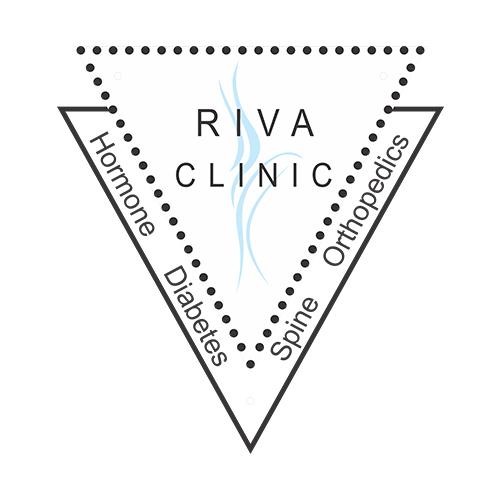Stress is an inevitable part of life, but when it becomes chronic, it can take a toll on your physical health, including causing or worsening neck pain. The connection between stress and neck pain is often overlooked, yet it's significant. Stress can lead to muscle tension, poor posture, and even changes in your pain perception, all of which contribute to neck discomfort. Understanding how stress affects your neck and learning strategies to break the cycle can help you manage pain more effectively. At Riva Clinic, we explore the impact of stress on neck pain and provide practical tips to help you find relief.
How Stress Contributes to Neck Pain
-
Increased Muscle Tension:
- Stress triggers the body's “fight or flight” response, releasing stress hormones like cortisol and adrenaline. These hormones prepare the body to deal with perceived threats by increasing muscle tension, especially in areas like the neck and shoulders. Over time, this constant muscle tension can lead to stiffness, pain, and even muscle spasms.
-
Poor Posture from Stress-Related Behaviors:
- Stress can affect your posture without you even realizing it. When stressed, people often hunch their shoulders, clench their jaw, or adopt a forward head posture. These poor posture habits increase strain on the neck muscles and spine, leading to pain and discomfort.
-
Altered Pain Perception:
- Chronic stress can heighten your sensitivity to pain. The brain's perception of pain can be amplified under stress, making you feel neck pain more acutely than you would under normal circumstances. This can create a vicious cycle where stress worsens pain, and the pain increases stress.
-
Reduced Blood Flow to Muscles:
- Stress can cause blood vessels to constrict, reducing blood flow to the muscles in the neck and shoulders. This reduced circulation can lead to muscle fatigue, stiffness, and increased pain.
-
Sleep Disturbances:
- Stress often leads to sleep disturbances, such as insomnia or poor-quality sleep. Lack of restorative sleep can exacerbate muscle pain and reduce your body’s ability to heal and recover, leading to persistent neck pain.
How to Break the Cycle of Stress and Neck Pain
-
Practice Relaxation Techniques:
- Relaxation techniques such as deep breathing, progressive muscle relaxation, and guided imagery can help reduce stress and muscle tension. Set aside a few minutes each day to practice these techniques, especially during stressful moments, to help calm your mind and relax your neck muscles.
-
Incorporate Mindfulness and Meditation:
- Mindfulness and meditation are powerful tools for managing stress and pain. They help you focus on the present moment and reduce anxiety, which can lower muscle tension and improve your perception of pain. Apps like Headspace or Calm can guide you through simple meditation exercises.
-
Engage in Regular Physical Activity:
- Exercise is one of the most effective ways to combat stress. Physical activity releases endorphins, which are natural painkillers and mood boosters. Activities such as yoga, walking, or swimming can help reduce stress and alleviate neck pain by promoting relaxation and improving posture.
-
Stretch and Strengthen Your Neck Muscles:
- Regular stretching and strengthening exercises can help relieve tension in the neck muscles and improve posture. Gentle neck stretches, such as side tilts, rotations, and shoulder shrugs, can reduce stiffness and pain. Strengthening exercises, like chin tucks and resistance band movements, can build muscle support around your neck.
-
Maintain Good Posture:
- Being mindful of your posture throughout the day can significantly reduce neck pain. Keep your head aligned with your spine, shoulders relaxed, and avoid slouching. Ergonomic adjustments, such as raising your computer monitor to eye level and using a chair with proper lumbar support, can help maintain good posture.
-
Utilize Heat and Cold Therapy:
- Heat therapy can relax tense muscles, while cold therapy can reduce inflammation and numb pain. Use a warm compress, heating pad, or take a warm shower to soothe tight neck muscles. Alternatively, apply a cold pack wrapped in a cloth for 10-15 minutes to reduce pain and swelling.
-
Get Enough Sleep:
- Quality sleep is essential for stress management and muscle recovery. Aim for 7-9 hours of sleep per night and establish a relaxing bedtime routine. Reducing screen time before bed, keeping a consistent sleep schedule, and creating a comfortable sleep environment can help improve your sleep quality.
-
Practice Time Management:
- Stress often stems from feeling overwhelmed by daily tasks and responsibilities. Practicing good time management can help you stay organized and reduce stress. Break tasks into smaller steps, set realistic goals, and prioritize activities that are most important.
-
Seek Social Support:
- Connecting with friends, family, or support groups can help reduce stress. Talking about your stressors and getting advice or empathy from others can provide emotional relief and help you feel less isolated in your experiences.
-
Consult a Professional:
- If neck pain persists despite these efforts, consider seeking help from a healthcare professional at Riva Clinic. We offer comprehensive evaluations and personalized treatment plans to address stress-related neck pain. Techniques such as physical therapy, acupuncture, or counseling can provide additional support for managing pain and stress.
Conclusion
The connection between stress and neck pain is clear, but by understanding how stress contributes to your discomfort, you can take proactive steps to break the cycle. Incorporating relaxation techniques, maintaining good posture, exercising regularly, and prioritizing self-care can help reduce stress and alleviate neck pain. At Riva Clinic, we are dedicated to helping you find effective, natural solutions for managing stress and Neck Pain Treatment in Delhi. If you’re struggling with persistent neck pain, reach out to our team for a personalized consultation and discover the best treatment options for your needs.


